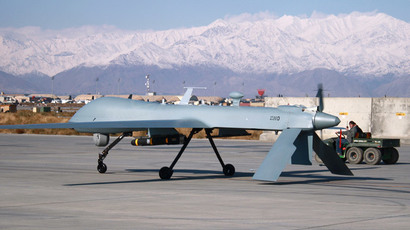NSA partnering with Saudi regime ‒ Snowden leak

The National Security Agency has increasingly been working hand-in-glove with the repressive Saudi Arabian government since 2013, sharing intelligence and assisting with surveillance, according to the latest Snowden leak.
Former NSA contractor Edward Snowden sent a top secret memorandum to The Intercept’s Glenn Greenwald that describes the secretive US agency’s relationship with Saudi Arabia. The NSA primarily works with the Saudi Ministry of Interior (MOI) and Ministry of Defense (MOD).
After the first Gulf War in 1991, the document says, the NSA had “a very limited [signals intelligence (SIGINT)] relationship” with the Saudi government, but is now “experiencing a period of rejuvenation.” The increased cooperation came after Director of National Intelligence (DNI) James Clapper approved an expansion of the SIGINT relationship in December 2012.
Even before that authorization, however, the NSA was collaborating with the Saudi Defense Ministry on a “sensitive access initiative” that began in 2011, and focused on “internal security and terrorist activity on the Arabian Peninsula.” It was conducted “under the auspices of CIA’s relationship with the MOI’s Mabahith (General Directorate for Investigations, equivalent to FBI).”
Now the NSA offers “technical advice on SIGINT topics such as data exploitation and target development” to the MOI’s Technical Affairs Directorate, “as well as a sensitive source collection capability,” and analytical and technical support. The US agency also provides “a sensitive decryption service to the Ministry of Interior against terrorist targets of mutual interest.”
The NSA shares threat warning and terrorist lead information ‒ generated in conjunction with the CIA station in the Saudi capital of Riyadh ‒ with Mabahith. It also provides the Interior Ministry with highly advanced surveillance technology.
The collaboration is a two-way street, the memo says, with the MOD giving the NSA access to remote geography in the gulf region, and providing information about Iran’s military and Al-Qaeda in the Arabian Peninsula.
This secretive spy partnership between the two US intelligence agencies and their Saudi counterparts may come at the expense of human rights. Organizations around the world, including the US State Department and Human Rights Watch, have condemned the kingdom’s escalating crackdown on activists, dissidents and government critics over the past year.
Despite MOI rules prohibiting the use of torture, there have been ongoing reports that “Ministry of Interior officials sometimes subjected prisoners and detainees to torture and other physical abuse, particularly during the investigation phase when interrogating suspects,” the State Department’s 2013 Country Reports on Human Rights Practices said. The US diplomacy agency also cited the MOI’s use of invasive surveillance targeted at political and religious dissidents, according to The Intercept.
At the end of June, Human Rights Watch called out Saudi authorities for deploying surveillance software reportedly created by the Italian firm, Hacking Team. The rights group says it has evidence the government is using the software to stamp out political dissidence in the Gulf country.
“We have documented how Saudi authorities routinely crack down on online activists who have embraced social media to call out human rights abuses,” said Cynthia Wong, senior internet researcher at Human Rights Watch. “It seems that authorities may now be hacking into mobile phones, turning digital tools into just another way for the government to intimidate and silence independent voices.”
When asked if the US takes human rights records into account before collaborating with foreign security agencies, a spokesman for the Office of the Director of National Intelligence told The Intercept: “Yes. We cannot comment on specific intelligence matters but, as a general principle, human rights considerations inform our decisions on intelligence sharing with foreign governments.”
There is no mention of human rights in the leaked memo.














